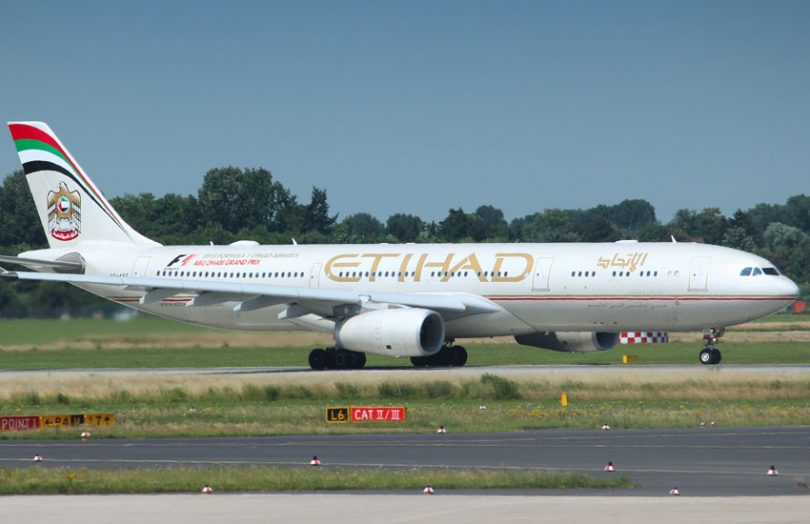Yesterday Reuters reported that Etihad Airways has partnered with blockchain firm Winding Tree for travel sales. The platform aims to use a public blockchain to cut out intermediaries, thereby reducing costs and increasing efficiency in the sector.
Etihad Airways, the national airline of the UAE, joins fellow carriers including Air Canada and Air France-KLM in adopting the platform.
Tristan Thomas, the Director of Digital and Innovation at Etihad, was optimistic about the deal: “Winding Tree is obviously our distribution (platform) and that’s an opportunity for us to disrupt a traditionally siloed market dominated by major distribution systems.”
“Very few have chosen to disrupt the distribution world and that’s because those are major players with very significant margins that have acted to keep that kind of a closed shop,” he continued.
Indeed, Winding Tree has previously pointed to just three firms – Amadeus, Sabre and Travelport – controlling 99% of the non-direct ticket sale market. This kind of dominance, the 2017 founded firm claims, creates higher costs for both the customer and airline.
The blockchain is based on a public Ethereum framework for a decentralized market. Despite being a young company, Winding Tree already boasts Lufthansa and subsidiary Eurowings, Swiss Air, Swissport, Brussels Airlines, Austrian Airlines, and Air New Zealand, along with the high profile airlines above. It raised just over $14 million in last year’s ICO.
Earlier this year the startup successfully carried out a pilot for hotel booking, the first to be done on a public blockchain. Winding Tree’s platform offers hotel and taxi booking along with flights.
“We’re providing a platform that allows the travel industry to create real change within an industry traditionally closed that relies on systems established nearly 30 years ago,” was a comment in May from Pedro Anderson, Co-Founder and COO of Winding Tree.






